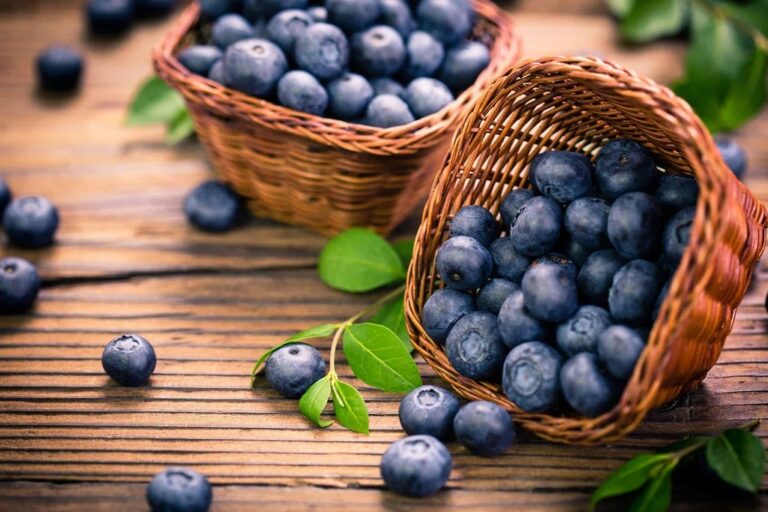If you’re looking for a natural way to boost your health and well-being, then look no further than the colorful world of fruits and vegetables. These vibrant plant-based foods not only provide essential vitamins and minerals but also contain a treasure trove of phytochemicals. In this article, we’ll delve into the incredible benefits of phytochemicals found in fruits and vegetables, backed by research data, and discover how they can promote a healthier life. The article is submitted by improvelifehere.com
Understanding Phytochemicals
Phytochemicals are naturally occurring compounds in plants that aren’t classified as essential nutrients, like vitamins or minerals. However, they play a crucial role in the overall health of the plant and, when consumed by humans, offer numerous health benefits. There are thousands of different phytochemicals, each with unique properties and potential health effects.
The Power of Antioxidants
One of the primary benefits of phytochemicals is their antioxidant properties. Antioxidants help combat oxidative stress in our bodies, which is caused by free radicals and can lead to cell damage and various diseases. Fruits and vegetables rich in phytochemicals, such as berries, spinach, and tomatoes, can significantly boost our antioxidant defense system. Discover the phytonutrients fruits and vegetables.
Reducing the Risk of Chronic Diseases
Regular consumption of phytochemical-rich fruits and vegetables has been linked to a reduced risk of chronic diseases. These include heart disease, certain cancers, diabetes, and neurodegenerative conditions. The combination of vitamins, minerals, fiber, and phytochemicals works synergistically to support our immune system and protect against various illnesses.
Supporting Heart Health
Phytochemicals, like flavonoids and carotenoids, have been shown to have a positive impact on heart health. They help lower blood pressure, reduce inflammation, and improve cholesterol levels, all of which contribute to a healthier cardiovascular system. Including a variety of colorful fruits and vegetables in your diet can have a significant impact on your heart’s well-being.
Boosting the Immune System
A robust immune system is essential for defending our bodies against infections and illnesses. Phytochemicals, particularly beta-carotene, vitamin C, and polyphenols, play a crucial role in enhancing our immune response. Citrus fruits, broccoli, garlic, and green tea are excellent sources of immune-boosting phytochemicals.
Promoting Digestive Health
Fiber is well-known for its role in supporting healthy digestion, but phytochemicals also contribute to digestive well-being. These compounds can help maintain a balanced gut microbiome, reduce inflammation in the digestive tract, and alleviate symptoms of gastrointestinal disorders.
Skin Nourishment
If you desire radiant and youthful-looking skin, incorporating fruits and vegetables into your diet can be a game-changer. Phytochemicals, like beta-carotene and lycopene, protect the skin from UV damage, improve skin elasticity, and promote a healthy glow.
Mood Enhancement
Believe it or not, the food you eat can influence your mood and mental well-being. Certain phytochemicals, such as serotonin-boosting compounds found in bananas and avocados, can help alleviate stress and anxiety while promoting a positive outlook on life.
Weight Management
Maintaining a healthy weight is essential for overall well-being, and phytochemicals can be beneficial in this regard too. Some of these compounds have been shown to support metabolism, regulate appetite, and aid in weight management efforts.
Athletic Performance and Recovery
For athletes and fitness enthusiasts, phytochemicals can be a secret weapon. These compounds contribute to improved stamina, faster recovery after workouts, and reduced exercise-induced oxidative stress.
Bone Health
As we age, maintaining strong and healthy bones becomes crucial. Phytochemicals like calcium, magnesium, and vitamin K, found abundantly in leafy greens and other plant-based foods, play a vital role in supporting bone health and preventing osteoporosis.
Detoxification
Detoxifying the body is essential for eliminating harmful substances and maintaining optimal health. Certain phytochemicals, such as those found in cruciferous vegetables like broccoli and cabbage, support the body’s detoxification processes.
Vision Support
Our eyesight is precious, and certain phytochemicals can help protect our vision as we age. Lutein and zeaxanthin, commonly found in kale and spinach, have been linked to a reduced risk of age-related macular degeneration and cataracts.
Anti-Inflammatory Benefits
Inflammation is at the root of many chronic diseases. Phytochemicals possess anti-inflammatory properties that can help combat inflammation and reduce the risk of related health issues.
Longevity and Aging
Last but not least, a diet rich in phytochemicals has been associated with a longer and healthier life. These compounds help combat cellular damage and promote overall vitality.
Conclusion
The benefits of phytochemicals found in fruits and vegetables are truly remarkable. From supporting heart health and immune function to promoting glowing skin and mental well-being, these natural compounds offer a wide range of advantages. Incorporating a diverse array of colorful plant-based foods into your diet is a simple yet effective way to harness the power of phytochemicals and enhance your overall health and longevity.
FAQs
Q1: Can I get enough phytochemicals from supplements alone?
A1: While supplements can provide some phytochemicals, it’s best to obtain them through a varied diet that includes a wide range of fruits and vegetables.
Q2: Are organic fruits and vegetables better sources of phytochemicals?
A2: Organic produce may have slightly higher levels of certain phytochemicals, but conventionally grown fruits and vegetables also offer significant benefits.
Q3: Can children benefit from phytochemicals too?
A3: Absolutely! Children can benefit from the nutrients and phytochemicals in fruits and vegetables to support their growth and development.
Q4: How do phytochemicals help with weight management?
A4: Some phytochemicals can regulate appetite and metabolism, making it easier to manage weight when combined with a balanced diet and regular exercise.
Q5: Can phytochemicals prevent all types of cancer?
A5: While phytochemicals may reduce the risk of certain cancers, they are not a guarantee against all types of cancer. A healthy lifestyle is essential for overall cancer prevention.
















